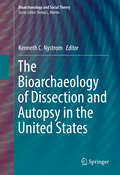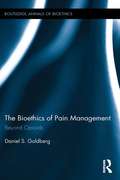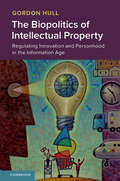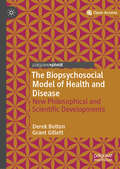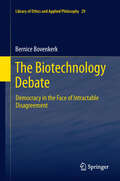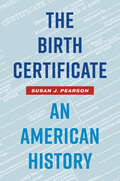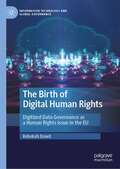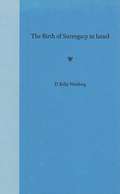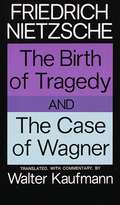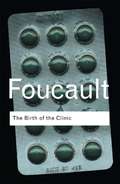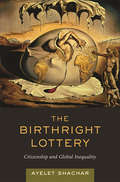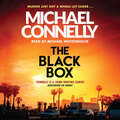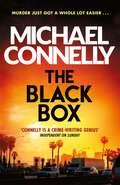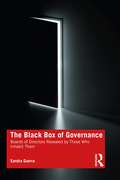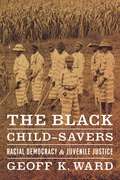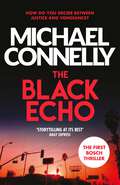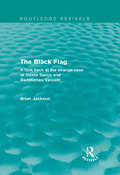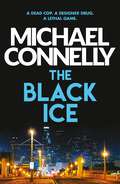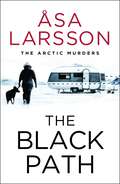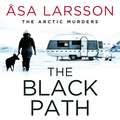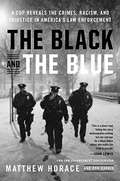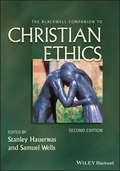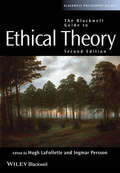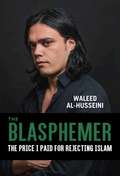- Table View
- List View
The Bioarchaeology of Dissection and Autopsy in the United States (Bioarchaeology and Social Theory)
by Kenneth C. NystromEncountering evidence of postmortem examinations- dissection or autopsy in historic skeletal collections is relativelyrare, but recently there has been an increase in the number of reportedinstances. And much of what has been evaluated has been largely descriptiveand historical. The Bioarchaeology ofDissection and Autopsy brings together in a single volume the skeletal evidence ofpostmortem examination in the United States. Ranging from the earlycolonial period to the early 1900's, from a coffeehouse at ColonialWilliamsburg to a Quaker burial vault in lower Manhattan, the contributions to this volume demonstrate the interpretive significance of a historically andtheoretically contextualizedbioarchaeology. The authors employ a wide range of perspectives, demonstrating how bioarchaeological evidence can be used to address a widerange of themes including social identity and marginalization, racialization,the nature of the body and fragmentation, and the emergence of medical practiceand authority in the United States.
The Bioethics of Pain Management: Beyond Opioids (Routledge Annals of Bioethics)
by Daniel S. GoldbergIn this book, public health ethicist Daniel S. Goldberg sets out to characterize the subjective experience of pain and its undertreatment within the US medical establishment, and puts forward public policy recommendations for ameliorating the undertreatment of pain. The book begins from the position that the overwhelming focus on opioid analgesics as a means for improving the undertreatment of pain is flawed, and argues instead that dominant Western models of biomedicine and objectivity delegitimize subjective knowledge of the body and pain in the US. This general intolerance for the subjectivity of pain is part of a specific American culture of pain in which a variety of actors take part, including not only physicians and health care providers, but also pain sufferers, caregivers, and policymakers. Concentrating primarily on bioethics, history, and public policy, the book brings a truly interdisciplinary approach to an urgent practical ethical problem. Taking up the practical challenge, the book culminates in a series of policy recommendations that provide pathways for moral agents to move beyond contests over drug policy to policy arenas that, based on the evidence, hold more promise in their capacity to address the devastating and inequitable undertreatment of pain in the US.
The Biopolitics of Intellectual Property: Regulating Innovation and Personhood in the Information Age
by Gordon HullAs a central part of the regulation of contemporary economies, intellectual property (IP) is central to all aspects of our lives. It matters for the works we create, the brands we identify and the medicines we consume. But if IP is power, what kind of power is it, and what does it do? Building on the work of Michel Foucault, Gordon Hull examines different ways of understanding power in copyright, trademark and patent policy: as law, as promotion of public welfare, and as promotion of neoliberal privatization. He argues that intellectual property policy is moving toward neoliberalism, even as that move is broadly contested in everything from resistance movements to Supreme Court decisions. This work should be read by anyone interested in understanding why the struggle to conceptualize IP matters.
The Biopsychosocial Model of Health and Disease: New Philosophical and Scientific Developments
by Grant Gillett Derek BoltonThis open access book is a systematic update of the philosophical and scientific foundations of the biopsychosocial model of health, disease and healthcare. First proposed by George Engel 40 years ago, the Biopsychosocial Model is much cited in healthcare settings worldwide, but has been increasingly criticised for being vague, lacking in content, and in need of reworking in the light of recent developments. The book confronts the rapid changes to psychological science, neuroscience, healthcare, and philosophy that have occurred since the model was first proposed and addresses key issues such as the model’s scientific basis, clinical utility, and philosophical coherence. The authors conceptualise biology and the psychosocial as in the same ontological space, interlinked by systems of communication-based regulatory control which constitute a new kind of causation. These are distinguished from physical and chemical laws, most clearly because they can break down, thus providing the basis for difference between health and disease. This work offers an urgent update to the model’s scientific and philosophical foundations, providing a new and coherent account of causal interactions between the biological, the psychological and social.
The Biotechnology Debate
by Bernice BovenkerkThis book grounds deliberative democratic theory in a more refined understanding of deliberative practice, in particular when dealing with intractable moral disagreement regarding novel technologies. While there is an ongoing, vibrant debate about the theoretical merits of deliberative democracy on the one hand, and more recently, empirical studies of specific deliberative exercises have been carried out, these two discussions fail to speak to one another. Debates about animal and plant biotechnology are examined as a paradigmatic case for intractable disagreement in today's pluralistic societies. This examination reveals that the disagreements in this debate are multi-faceted and multi-dimensional and can often be traced to fundamental disagreements about values or worldviews. "One of the acute insights to emerge from this examination is that deliberation can serve different purposes vis-à-vis different types of problem. In the case of deeply unstructured problems, like the modern biotechnology debate, the aim of inclusion is more appropriate than the aim of consensus. This book highlights the importance of political culture and broader institutional settings in shaping the capacity and propensity of citizens to engage in deliberation and the degree to which governments are prepared to relinquish authority to deliberative mini-publics." Robyn Eckersley, University of Melbourne, Australia
The Birth Certificate: An American History
by Susan J. PearsonFor many Americans, the birth certificate is a mundane piece of paper, unearthed from deep storage when applying for a driver's license, verifying information for new employers, or claiming state and federal benefits. Yet as Donald Trump and his fellow "birthers" reminded us when they claimed that Barack Obama wasn't an American citizen, it plays a central role in determining identity and citizenship.In The Birth Certificate: An American History, award-winning historian Susan J. Pearson traces the document's two-hundred-year history to explain when, how, and why birth certificates came to matter so much in the United States. Deftly weaving together social, political, and legal history, The Birth Certificate is a fascinating biography of a piece of paper that grounds our understanding of how those who live in the United States are considered Americans.
The Birth of Digital Human Rights: Digitized Data Governance as a Human Rights Issue in the EU (Information Technology and Global Governance)
by Rebekah DowdThis book considers contested responsibilities between the public and private sectors over the use of online data, detailing exactly how digital human rights evolved in specific European states and gradually became a part of the European Union framework of legal protections. The author uniquely examines why and how European lawmakers linked digital data protection to fundamental human rights, something heretofore not explained in other works on general data governance and data privacy. In particular, this work examines the utilization of national and European Union institutional arrangements as a location for activism by legal and academic consultants and by first-mover states who legislated digital human rights beginning in the 1970s. By tracing the way that EU Member States and non-state actors utilized the structure of EU bodies to create the new norm of digital human rights, readers will learn about the process of expanding the scope of human rights protections within multiple dimensions of European political space. The project will be informative to scholar, student, and layperson, as it examines a new and evolving area of technology governance – the human rights of digital data use by the public and private sectors.
The Birth of Surrogacy in Israel
by D. Kelly WeisbergThis is the first book that explores the controversial dilemmas posed by surrogate motherhood--the practices that help infertile couples to have a biologically related child--and connects them to events that led to passage of a revolutionary surrogacy law in Israel. As D. Kelly Weisberg discusses the country's surrogacy legislation, passed in 1996, she reveals a unique regulatory scheme that blazes a trail for those who wrestle with the complex legal, medical, and ethical aspects of new reproductive technologies. At the same time, she illuminates the roles of key players in the enactment of that program--barren wives challenged the government, childless couples who participated in a lawsuit against the Israeli Parliament, the family law practitioner who championed the cause before the Israeli Supreme Court, the academics who served on the law reform commission, and the feminist legal scholar who drafted that commission's controversial recommendations. Surrogacy has led to the birth of more than 10,000 babies worldwide. Yet the practice challenges our notions of motherhood, fatherhood, family, and procreation. With surrogacy, the family has become a creation of the marketplace: children come into being as the product of contractual arrangements between perfect strangers. And serious disputes sometimes arise as a result. Conservative religious and political influences at play in Israel make it an unlikely setting for progressive reform; however, the Surrogate Mother Agreements Act catapulted Israel to the forefront of public attention as the only country where surrogacy is legal, remunerated, and government-supervised. No other law exists that is as comprehensive as Israel's. Weisberg examines the social forces that contributed to the law, documenting the clash between religious groups, which paradoxically favored a law on reproductive freedom, and feminist groups, which opposed it. She assesses the new law, discusses what other countries can learn from Israel's example, and explores its implications for the globalization of surrogacy. She also considers generally the role of religion and law in social change.
The Birth of Tragedy and the Case of Wagner
by Friedrich NietzscheThe Birth of Tragedy (1872) was Nietzsche's first book. Its youthful faults were exposed by Nietzsche in the brilliant "Attempt at a Self-Criticism" which he added to the new edition of 1886. But the book, whatever its excesses, remains one of the most relevant statements on tragedy ever penned. It exploded the conception of Greek culture that was prevalent down through the Victorian era, and it sounded themes developed in the twentieth century by classicists, existentialists, psychoanalysts, and others. The Case of Wagner (1888) was one Nietzsche's last books, and his wittiest. In attitude and style it is diametrically opposed to The Birth of Tragedy. Both works transcend their ostensible subjects and deal with art and culture, as well as the problems of the modern age generally. Each book in itself gives us an inadequate idea of its author; together, they furnish a striking image of Nietzsche's thought. The distinguished new translations by Walter Kaufmann superbly reflect in English Nietzsche's idiom and the vitality of his style. Professor Kaufmann has also furnished running footnote commentaries, relevant passages from Nietzsche's correspondence, a bibliography, and, for the first time in any edition, an extensive index to each book.
The Birth of the Clinic: An Archaeology Of Medical Perception (Routledge Classics)
by Michel FoucaultIn this remarkable book Michel Foucault, one of the most influential thinkers of recent times, calls us to look critically at specific historical events in order to uncover new layers of significance. In doing so, he challenges our assumptions not only about history, but also about the nature of language and reason, even of truth. The scope of such an undertaking is vast, but by means of his uniquely engaging narrative style, Foucault’s penetrating gaze is skilfully able to confront our own. After reading his words our perceptions are never quite the same again.
The Birthright Lottery: Citizenship and Global Inequality
by Ayelet ShacharThe vast majority of the global population acquires citizenship purely by accidental circumstances of birth. In The Birthright Lottery, Ayelet Shachar argues that birthright citizenship in an affluent society can be thought of as a form of property inheritance: that is, a valuable entitlement transmitted by law to a restricted group of recipients under conditions that perpetuate the transfer of this prerogative to their heirs.
The Black Box (Harry Bosch Series #16)
by Michael ConnellyMay 1992, and after four LAPD officers were acquitted after the savage beating of Rodney King, Los Angeles is ablaze. As looting and burning take over the city, law and order are swept away in a tidal wave of violence. But under threat of their lives, homicide detectives like Harry Bosch are still stubbornly trying to do their job. With no effective police presence on the streets, murder just got a whole lot easier - and investigating them got a whole lot harder. When Harry finds the body of a female journalist in an alley he is forced to hand over the case to the Riot Crimes Task Force, knowing that it will never be solved.Twenty years later, new evidence confirms her death was not a case of random violence but something much more personal. This time Harry is determined that the killer isn't going to escape - even if it means stepping back into the darkest days of the city he loves...Read by Michael McConnohie(p) 2012 Hachette Audio
The Black Box (Harry Bosch Series #16)
by Michael ConnellyMay 1992, and after four LAPD officers are acquitted following the savage beating of Rodney King, Los Angeles is ablaze. As looting and burning take over the city, law and order are swept away in a tidal wave of violence. But under threat of their lives, homicide detectives like Harry Bosch are still stubbornly trying to do their job. With no effective police presence on the streets, murder just got a whole lot easier - and investigating them a whole lot harder. When Harry finds the body of a female journalist in an alley, he is forced to hand over the case to the Riot Crimes Task Force, knowing that it will never be solved.Twenty years later, new evidence confirms her death was not a case of random violence but something much more personal. This time Harry is determined that the killer isn't going to escape - even if it means stepping back into the darkest days of the city he loves . . .
The Black Box of Governance: Boards of Directors Revealed by Those Who Inhabit Them
by Sandra GuerraIn the world of corporate governance, the board of directors is often viewed as the "black box" of companies: only the board members who are seated at the meeting table understand how this "decision-making machine" works. In this book, a board member with over 25 years’ experience pulls off the lid and shows both how boards have worked and how they could work. This book is grounded in extensive research in three different surveys: one with more than 100 Brazilian directors, another with 340 board members from 40 countries, and a final one with 103 Brazilian directors serving on 238 boards. It also includes interviews with Ira Millstein, Sir Adrian Cadbury, Robert Monks and Mervyn King. The inner-workings of the board of directors are revealed: • What keeps directors awake at night • Obstacles to efficient decision-making • Behavioral dynamics, both within the board and in relation to the management • Pitfalls that arise from individual and group biases Based on these insights and the author’s own consulting and board experience, the book presents a guide to behavioral tools enabling directors and executives to confidently navigate the boardroom, improving interactivity and the efficiency of the decision-making process. Intended for directors and executives who are directly involved in the board's activities, as well as for leaders responsible for strategy implementation, this book provides a behavioral compass for all those interacting with the "black box."
The Black Child-Savers: Racial Democracy and Juvenile Justice
by Geoff K. WardDuring the Progressive Era, a rehabilitative agenda took hold of American juvenile justice, materializing as a citizen-and-state-building project and mirroring the unequal racial politics of American democracy itself. Alongside this liberal "manufactory of citizens," a parallel structure was enacted: a Jim Crow juvenile justice system that endured across the nation for most of the twentieth century. In The Black Child Savers, the first study of the rise and fall of Jim Crow juvenile justice, Geoff Ward examines the origins and organization of this separate and unequal juvenile justice system. Ward explores how generations of "black child-savers" mobilized to challenge the threat to black youth and community interests and how this struggle grew aligned with a wider civil rights movement, eventually forcing the formal integration of American juvenile justice. Ward's book reveals nearly a century of struggle to build a more democratic model of juvenile justice--an effort that succeeded in part, but ultimately failed to deliver black youth and community to liberal rehabilitative ideals. At once an inspiring story about the shifting boundaries of race, citizenship, and democracy in America and a crucial look at the nature of racial inequality, The Black Child Savers is a stirring account of the stakes and meaning of social justice.
The Black Echo (Harry Bosch Series #1)
by Michael ConnellyGo back to where it all began for LAPD detective Harry Bosch, star of Amazon Prime's Bosch, in his first case The Black Echo - a gripping, action-packed thriller.LAPD detective Harry Bosch is a loner and a nighthawk. One Sunday he gets a call-out on his pager. A body has been found in a drainage tunnel off Mulholland Drive, Hollywood. At first sight, it looks like a routine drugs overdose case, but the one new puncture wound amid the scars of old tracks leaves Bosch unconvinced.To make matters worse, Harry Bosch recognises the victim. Billy Meadows was a fellow 'tunnel rat' in Vietnam, running against the VC and the fear they all used to call the Black Echo. Bosch believes he let down Billy Meadows once before, so now he is determined to bring the killer to justice.
The Black Flag: A look back at the strange case of Nicola Sacco and Bartolomeo Vanzetti (Routledge Revivals)
by Brian JacksonFirst published in 1981, this book reassesses the case of Sacco and Vanzetti, two Italian immigrant anarchists living in Boston in 1920. The pair were accused of a payroll robbery and the murder of two guards for which they were arrested and, after a long trial based on inadequate and prejudiced evidence, executed in 1927. In 1977, on the fiftieth anniversary of their deaths, the Commonwealth of Massachusettes issued a proclamation which acknowledged a miscarriage of justice. The Black Flag provides an account of the controversial trial and a re-evaluation of the celebrated case of the Commonwealth’s decision. Brian Jackson puts the trial in the social context of the period and exposes the nature of anarchism by looking at the lives of two of its exponents, resulting in a moving exploration of a series of events that continue to trouble the conscience of America.
The Black Ice (Harry Bosch Series #2)
by Michael ConnellyWhen a body is found in a hotel room, reporters are soon all over the case: it appears to be a missing LAPD narcotics detective, apparently gone to the bad. The rumours were that he had been selling a new drug called Black Ice that had been infiltrating Los Angeles from the Mexican cartel. The LAPD are quick to declare the death a suicide, but Harry Bosch is not so sure. There are odd mysteries and unexplained details from the crime scene which just don't add up. Fighting an attraction to the detective's widow, Bosch starts his own maverick investigation, which soon leads him over the borders and into a dangerous world of shifting identities, police politics and deadly corruption . . .
The Black Path: Rebecka Martinsson: Arctic Murders – Now a Major TV Series
by Åsa LarssonThe novels that inspired Rebecka Martinsson: Arctic Murders - the major TV seriesOne of The Times' "Best Crime Novels by Women since 2000" "Rebecka Martinsson: the new Scandi-noir heroine to rival Saga Noren and Sarah Lund" iNews "In a television world now awash in female coppers, there aren't many as interesting and human as Rebecka" Wall Street JournalThe frozen body of a woman is found in a fishing ark on the ice near Torneträsk in northern Sweden. She has been brutally tortured, but the killing blow was clumsy, almost amateur. The body is quickly identified, raising hopes of an open-and-shut solution. But when a six-month-old suicide is disinterred, Rebecka Martinsson and Anna-Maria Mella find themselves investigating shocking corruption at the heart of one of Sweden's most successful mining companies. One that has powerful enemies of its own.
The Black Path: Rebecka Martinsson: Arctic Murders – Now a Major TV Series (The Arctic Murders)
by Åsa LarssonThe novels that inspired Rebecka Martinsson: Arctic Murders - the major TV series One of The Times' "Best Crime Novels by Women since 2000" "Rebecka Martinsson: the new Scandi-noir heroine to rival Saga Noren and Sarah Lund" iNews "In a television world now awash in female coppers, there aren't many as interesting and human as Rebecka" Wall Street JournalThe frozen body of a woman is found in a fishing ark on the ice near Torneträsk in northern Sweden. She has been brutally tortured, but the killing blow was clumsy, almost amateur. The body is quickly identified, raising hopes of an open-and-shut solution. But when a six-month-old suicide is disinterred, Rebecka Martinsson and Anna-Maria Mella find themselves investigating shocking corruption at the heart of one of Sweden's most successful mining companies. One that has powerful enemies of its own.
The Black Path: The Arctic Murders – A gripping and atmospheric murder mystery (The Arctic Murders #1)
by Åsa LarssonA woman's body is found on a frozen lake, bearing the marks of grisly torture. Inspector Anna-Maria Mella knows she needs help with the case - the woman was a key player in a mining company whose tentacles reach across the globe. Lawyer Rebecka Martinsson is desperate to get back to work, to feel alive again after a case that almost destroyed her both physically and emotionally. Soon she is delving into the affairs of the victim's boss, the founder of Kallis Mining, whose relationship with the dead woman was complex and obsessive. Martinsson and Mella are about to uncover a dark and tangled drama of family secrets, twisted sexuality, and corruption on a massive scale. Set against a haunting, icy backdrop and packed with suspense, The Black Path is a menacing and evocative psychological crime novel.(P)2014 WF Howes Ltd
The Black and the Blue: A Cop Reveals the Crimes, Racism, and Injustice in America's Law Enforcement
by Matthew Horace Ron HarrisCNN contributor offers a searing indictment of America's law enforcement."This is a must-read.... Telling this story demonstrates nothing but raw courage for a black police officer who wants the truth to prevail." --John Lewis"[T]his [is a] hard-hitting, convincing indictment of the biases in today's law enforcement.... A must-read for anyone interested in understanding and solving these problems." --Booklist (starred review)Matthew Horace was an officer at the federal, state, and local level for 28 years working in every state in the country. Yet it was after seven years of service when Horace found himself face-down on the ground with a gun pointed at his head by a white fellow officer, that he fully understood the racism seething within America's police departments. Using gut-wrenching reportage, on-the-ground research, and personal accounts garnered by interviews with police and government officials around the country, Horace presents an insider's examination of police tactics, which he concludes is an "archaic system" built on "toxic brotherhood." Horace dissects some of the nation's most highly publicized police shootings and communities highlighted in the Black Lives Matter movement and beyond to explain how these systems and tactics have had detrimental outcomes to the people they serve. Horace provides fresh analysis on communities experiencing the high killing and imprisonment rates due to racist policing such as Ferguson, New Orleans, Baltimore, and Chicago from a law enforcement point of view and uncovers what has sown the seeds of violence.Timely and provocative, The Black and The Blue sheds light on what truly goes on behind the blue line.
The Blackwell Companion to Christian Ethics
by Stanley Hauerwas Samuel WellsFeaturing updates, revisions, and new essays from various scholars within the Christian tradition, The Blackwell Companion to Christian Ethics, Second Edition reveals how Christian worship is the force that shapes the moral life of Christians.Features new essays on class, race, disability, gender, peace, and the virtuesIncludes a number of revised essays and a range of new authorsThe innovative and influential approach organizes ethical themes around the shape of Christian worshipThe original edition is the most successful to-date in the Companions to Religion series
The Blackwell Guide to Ethical Theory
by Hugh Lafollette Ingmar PerssonBuilding on the strengths of the highly successful first edition, the extensively updated Blackwell Guide to Ethical Theory presents a complete state-of-the-art survey, written by an international team of leading moral philosophers. A new edition of this successful and highly regarded Guide, now reorganized and updated with the addition of significant new materialIncludes 21 essays written by an international team of leading philosophersExtensive, substantive essays develop the main arguments of all the leading viewpoints in ethical theoryEssays new to this edition cover evolution and ethics, capability ethics, virtues and consequences, and the implausibility of virtue ethics
The Blasphemer: The Price I Paid for Rejecting Islam
by Waleed Al-HusseiniThe Infuriating Tale Of A Young Palestinian Punished For Exercising His Freedom Of Speech.Like many of his generation, Waleed Al-Husseini began a blog in his twenties. However, unlike many, Waleed also had the misfortune of having been a blogger in Palestine; worse yet, he often criticized Islam and its adherents-and declared himself an apostate-in his writings. The Palestinian Authority did not take well to this and eventually put Waleed in jail without a trial or even a wisp of legal justification. As if this was not bad enough, they placed Waleed in solitary confinement. This state of affairs continued for 11 months. Over the course of this time, Waleed was tortured and suffered innumerable indignities and deprivations simply for having the audacity to speak his mind. Eventually his unjust imprisonment began to draw international attention from foreign governments and human rights organizations, which pressured the Palestinian Authority and finally forced it to provide him a trial and parole. After being paroled, Waleed fled Palestine, first to Jordan and then to France, where he has become an outspoken advocate for freedom of speech and a critic of the state of contemporary Islam. The Blasphemer is a sobering, impassioned recounting of this Kafkaesque experience as well as a searing polemic against the corruption and hypocrisy that define contemporary Palestine.
